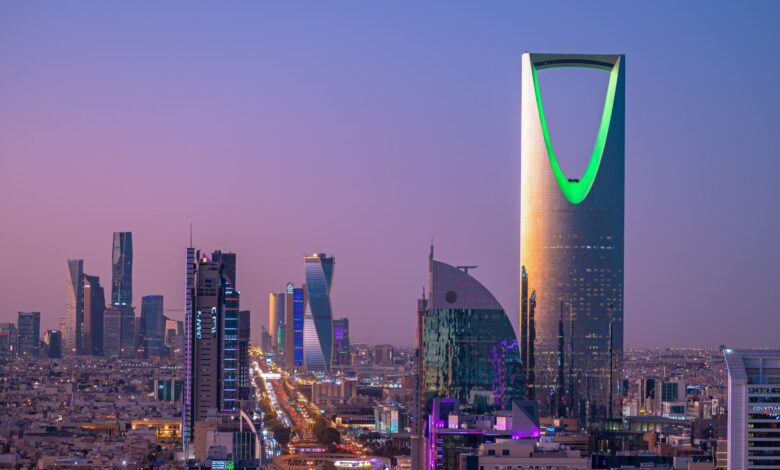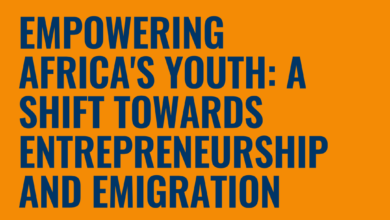Saudi Arabia’s Economic Transformation: Educating For A Diversified Future

Opinions expressed by Entrepreneur contributors are their own.
You’re reading Entrepreneur Middle East, an international franchise of Entrepreneur Media.
Gone are the days of relying solely on black gold. Saudi Arabia is embarking on a bold economic transformation unlike any other in its history.
Vision 2030, championed by HRH Prince Mohammed bin Salman bin Abdulaziz Al-Saud, Crown Prince and Prime Minister of Saudi Arabia, is a blueprint to reshape the Kingdom’s economic destiny, by reducing its reliance on a finite resource. This isn’t just about tweaking the margins; Vision 2030 is a full-fledged economic transformation. Here, in the heart of the Kingdom, a new narrative is being written– one where education, not oil, is the wellspring of a diversified future.
Recognizing that a grand future needs solid foundations, Vision 2030 places education at its core. The Vision’s second theme says: “A thriving economy provides opportunities for all by building an education system aligned with market needs and creating economic opportunities for the entrepreneur, the small enterprise, as well as the large corporation.”
In Saudi Arabia, its people are a gold mine of potential- and education is the key to unlocking that economic treasure chest. That’s where the Mohammed bin Salman College of Business and Entrepreneurship (MBSC) steps in. The college is dedicated to cultivating a future-ready workforce by providing high-quality, market-driven education that equips students with the skills and knowledge necessary to succeed in a dynamic global economy.
Therefore, this human capital development isn’t taking place within the confines of traditional classrooms. Unlike its more conventional counterparts, MBSC emphasizes practical skills and hands-on learning. Here, students develop a global perspective and are exposed to diverse cultures, preparing them for the interconnected world of business. By equipping the Saudi youth with the knowledge and experience necessary to navigate the evolving landscape, MBSC is playing a crucial role in empowering the next generation of leaders, essential for overcoming challenges and ensuring they become pioneers for vision of 2030.
Related: Five Future Trends To Expect From Saudi Arabia’s Startup Investment Landscape
For instance, MBSC favors experiential learning in its practice-based degree programs, like in its Executive MBA program. The curriculum incorporates signature courses that challenge students to tackle real-world problems, fostering innovation and entrepreneurial thinking. Selective admissions ensure specialized education tailored to industry needs and held to the highest international standards.
Additionally, MBSC prioritizes quality and impact by selecting top-tier students, faculty, and staff. Led by faculty members trained at Babson College, MBSC’s innovative education model emphasizes practical skills and hands-on learning, fostering business leaders poised to drive economic growth. By collaborating with Babson Global and industry partners, MBSC ensures students are equipped to thrive in dynamic environments. In addition, the selective admissions process at MBSC underscores its strategic approach to providing specialized education tailored to industry requirements and held to the highest international standards.
Most importantly, MBSC faculty are experts in their field who bring a wealth of real-world experience and insights into the classroom. Their expertise and connections to the business world enhance the institution’s credibility and authoritative standing, ensuring that students receive a cutting-edge education that is grounded in practical applications.
This practical learning bears fruit. For example, 57% of MBSC graduates are assuming leadership roles in the public sector, while 19% are securing positions in the private sector. This highlights the college’s ability to prepare graduates for successful careers in various sectors of the KSA economy. In the realm of executive education, MBSC has delivered a substantial 1700 hours of training, producing over 2000 executive education alumni. Remarkably, 97% of these alumni currently hold managerial positions or higher, demonstrating the effectiveness of MBSC’s executive education programs in enhancing professional leadership skills.
Furthermore, recognizing the strategic importance of knowledge in diversification, MBSC established the first Case Centre in Saudi Arabia. Housing the world’s largest repository of cases on the Kingdom, it is a premier hub for knowledge creation and regional thought leadership. The college produced 100+ case studies on Saudi Arabia, covering 20 industries. By providing valuable insights, MBSC empowers organizations to facilitate critical thinking and navigate the complexities the real world with confidence, ultimately contributing to the advancement of both the private and public sectors.
In conclusion, the journey ahead for Saudi Arabia is one of immense potential. With a focus on education, innovation, and unleashing the capabilities of its people, the Kingdom is poised to write a new chapter in its economic story. Vision 2030 serves as a roadmap for a future brimming with possibilities, not just for Saudi Arabia, but for the entire region. The world will be watching with anticipation as the Kingdom embarks on this transformative journey, eager to see the new era of prosperity that unfolds.
MBSC stands as a beacon of this transformation, shaping a new narrative where education and innovation fuel economic prosperity. As Vision 2030 charts the course towards a diversified future, MBSC’s commitment to practical, market-driven education ensures that Saudi Arabia’s youth are equipped to lead by thinking of innovative solutions, and executing them successfully.
Related: A Look At How Saudi Arabia’s Vision 2030 Has Spurred Entrepreneurship In The Kingdom



